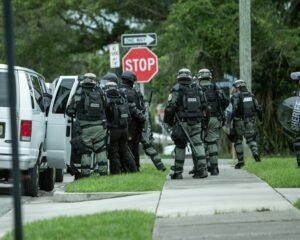How to Prepare for Police Job Interviews in Texas
Police job interviews in Texas are a critical step in the hiring process. Proper preparation can make all the difference in presenting yourself as a competent and reliable candidate. Below, we provide a comprehensive guide to help you excel in your interview.
Understanding the Hiring Process for Police Jobs in Texas
Before diving into interview preparation, it is essential to understand the overall hiring process for law enforcement roles in Texas. Typically, the process involves:
- Application Submission: Completing the necessary paperwork and providing accurate details.
- Written Exam: A standardized test assessing your cognitive abilities and basic skills.
- Physical Fitness Test: Demonstrating your physical readiness for the demands of the role.
- Background Check: A thorough review of your personal, educational, and professional history.
- Oral Board Interview: A panel interview designed to evaluate your critical thinking, situational judgment, and communication skills.
Research the Police Department You Are Applying To
Each police department in Texas has unique values, goals, and community expectations. Research the specific department to tailor your answers to their mission and vision.
Key Steps:
- Visit the Department’s Website: Understand their history, core values, and recent initiatives.
- Engage with Local Officers: If possible, talk to current officers to gain insights into the department’s culture.
- Review Community Programs: Familiarize yourself with the department’s involvement in the community.
Common Police Interview Questions and How to Answer Them
1. Why Do You Want to Become a Police Officer?
Tips for Answering:
- Highlight your commitment to public service.
- Share personal experiences that inspired you to pursue a career in law enforcement.
- Align your values with the department’s mission.
Example:
“I have always been passionate about serving my community and ensuring safety for all. Growing up in Texas, I admired how law enforcement officers positively impacted our neighborhood, and I aim to contribute in the same meaningful way.”
2. How Would You Handle a Difficult Situation on Duty?
Tips for Answering:
- Use the STAR method (Situation, Task, Action, Result) to structure your response.
- Emphasize problem-solving, communication, and de-escalation skills.
Example:
“In my previous security role, I encountered a situation where a customer became highly agitated. I calmly listened to their concerns, acknowledged their frustration, and worked with them to resolve the issue. This approach de-escalated the situation, and they left feeling heard and satisfied.”
3. What Are Your Strengths and Weaknesses?
Tips for Answering:
- Be honest and self-aware.
- Discuss strengths that align with law enforcement (e.g., teamwork, integrity).
- Mention a weakness you are actively improving.
Example:
“One of my strengths is my ability to stay calm under pressure, which I have demonstrated in high-stress situations. As for my weakness, I sometimes take on too much responsibility, but I am learning to delegate tasks more effectively.”
Prepare for Scenario-Based Questions
Texas police interviews often include hypothetical scenarios to test your decision-making. Practice responding to situations such as:
- Handling a domestic dispute: Emphasize empathy, communication, and prioritizing safety.
- Responding to a traffic incident: Highlight quick thinking and adherence to protocols.
- Dealing with an uncooperative suspect: Focus on de-escalation and professionalism.
Example Question:
“You arrive at a scene where two individuals are arguing loudly. One person accuses the other of theft. How would you handle this?”
Sample Answer:
“I would separate the individuals to gather their statements without interruptions. I would assess the situation by asking open-ended questions and observing body language. Depending on the evidence, I would take appropriate action while maintaining a calm and neutral demeanor.”
Dress Professionally and Arrive Prepared
First impressions matter. Your appearance and punctuality can reflect your commitment to the role.
Dress Code:
- Wear formal, conservative attire such as a suit and tie for men or a blazer and slacks for women.
- Ensure your clothes are clean and well-fitted.
What to Bring:
- Multiple copies of your resume.
- A notepad and pen for taking notes.
- Any requested documents, such as certifications or IDs.
Mastering Body Language and Communication
Non-verbal cues play a significant role in how you are perceived during the interview.
Body Language Tips:
- Maintain good posture to convey confidence.
- Make consistent eye contact with the interview panel.
- Use hand gestures sparingly to emphasize points.
Verbal Communication:
- Speak clearly and at a moderate pace.
- Avoid filler words like “um” or “uh.”
- Listen attentively and pause before responding to questions.
Practice Mock Interviews
Simulating the interview environment can significantly improve your performance. Ask a friend or mentor to conduct a mock interview, or record yourself answering questions to identify areas for improvement.
Tips for Effective Practice:
- Time your responses to ensure they are concise but thorough.
- Focus on articulating your thoughts with confidence.
- Review common interview mistakes and avoid them.
Understand Texas-Specific Law Enforcement Requirements
Knowledge of Texas laws, jurisdictional responsibilities, and cultural diversity will set you apart from other candidates. Study the Texas Penal Code, traffic regulations, and community policing strategies to demonstrate your readiness.
Follow-Up After the Interview
After the interview, sending a thank-you note can leave a lasting impression. Express gratitude for the opportunity and reiterate your enthusiasm for joining the department.
Example:
“Thank you for taking the time to meet with me today. I deeply admire the work your department does for the community, and I am eager to contribute to its mission. Please feel free to reach out if you need any additional information from me.”
By preparing thoroughly and following these strategies, you can position yourself as a top candidate for police job interviews in Texas. Remember, confidence, professionalism, and a genuine passion for law enforcement will set you apart.












